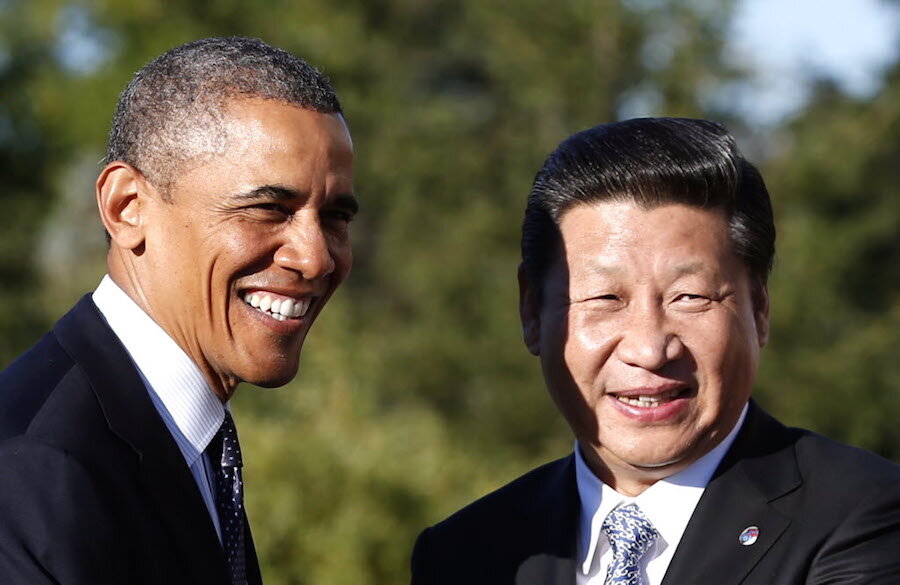China’s voice in the global opera
Loading...
Later this month, Chinese leader Xi Jinping will visit President Obama at the White House. The summit between the world’s two largest economies will come soon after a showy parade in Beijing that put China’s military might on full display. It also comes as Mr. Xi prepares to take the helm next year of the Group of Twenty, a club of wealthy nations that is fast becoming influential in setting the world’s agenda.
These events are signs of China emerging as a global leader and not one merely trying to become the paramount power in Asia. Its Navy now plies American waters. Its currency is used in more countries. Its Confucius Institutes teach the Chinese language in many countries. And China bestows generous loans on countries that respect its rising stature and sell it raw materials.
These are also signs that China has moved beyond the Mao Zedong view that “power comes from the barrel of a gun.” Indeed, Xi is even moving beyond the advice of Mao’s successor, Deng Xiaoping, that the Chinese people “hide your strength, bide your time, never take the lead.”
Xi portrays China’s role as peaceful but insists on “a new type of international system.” Yet he has not been very specific on China’s preferred style of leadership. Does he see a great nation’s authority resting on its material and military resources? Or does the source of a nation’s power lie in setting a moral example with shared values that attract other nations to trust it as a stable and collaborative ally?
There are many who are skeptical that China can become a leader. “The answer is no; it’s not willing or able to play a serious global leadership role,” says Michael Thawley, head of Australia’s office of the prime minister. With China’s once-booming economy now on the skids, such skeptics are growing louder.
By its sheer size as home to a quarter of humanity, China will necessarily be a leader someday. Yet it must operate in a world now tightly knit by economics, the Internet, and global rules established for decades. The old notion of leadership as domineering must be set aside – as the United States learned after letting loose the turmoil in Iraq and Libya. Last year, Mr. Obama defined his preferred leadership style as “empowering partners,” with the US serving as a “hub of alliances.”
For two decades, top officials of the US and China have held strategic dialogues to lay the building blocks for a global partnership. This listening exercise has yielded a few agreements, such as steps to slow climate change. The talks are not an attempt to balance the power of two countries but to define the global public goods – and not just material goods.
For the US, those goods are a rules-based system that honors the dignity and worth of the individual, and where governments must answer to their citizens. With its one-party rule and crackdown on dissent, China prefers a different set of virtues, defined not by the people but by the unelected and secretive elect of the Communist Party. China's chairman Xi speaks of "the China Dream" and the party ensuring security and prosperity for the people.
Xi should use the US-China summit and his coming G20 leadership to explain the values that China wants to use in helping to manage the world’s challenges, such as cybercrime, refugee flows, balanced economic growth, nonstate militancy, and a need for more technological innovation. In the 21st century, the “international system” rests not on the exercise of brute force by particular nations but on shared ideals. It may now be China’s time to reveal its ideals and see if it can reshape the global order.







